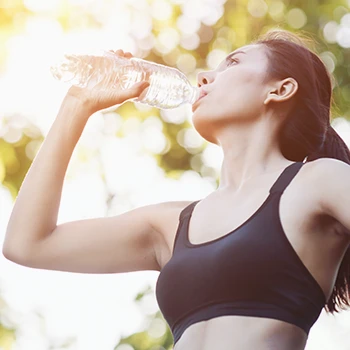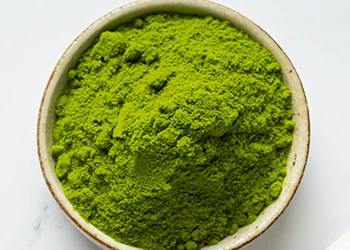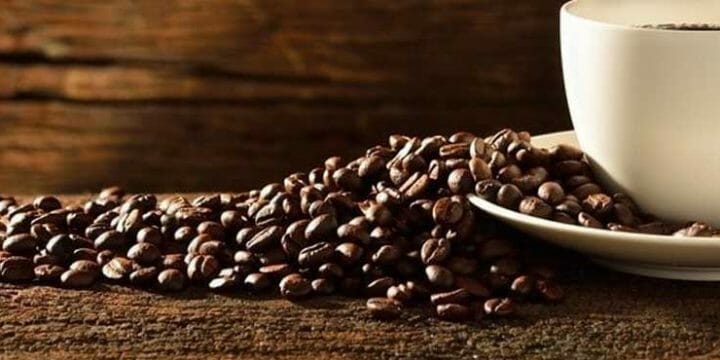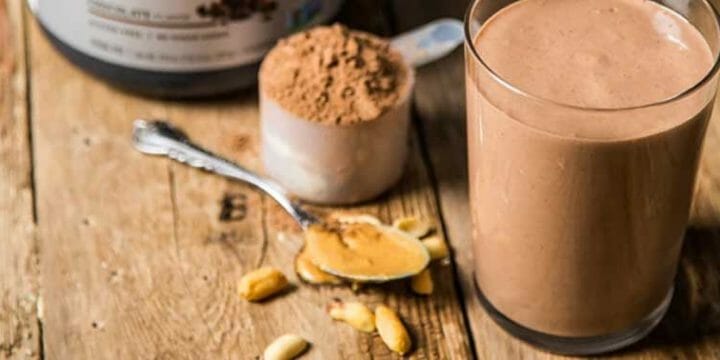Some of my clients are embarrassed at the gym by how much sweat they are producing while exercising, particularly after chugging pre-workout. They often ask me if pre-workout is the one to blame for their excessive sweating.
I wanted to look at what could be causing this for my clients, so I took a deep dive into some common pre-workout ingredients and the research behind them to see if I could pinpoint the source.
So, why does pre-workout make you sweat more? Let’s take a look.
Quick Summary
- Pre-workout supplements make you sweat more by containing thermogenic ingredients that raise body temperature and enhance workout intensity.
- Common thermogenic ingredients in these supplements include caffeine, green tea extract, yohimbe, and garcinia cambogia.
- Research published by the National Institutes of Health (NIH) shows that caffeine, a major component in many pre-workouts, can increase sweating through thermogenesis and sudomotor changes.
- In my personal opinion, opting for high-quality, caffeine-free pre-workouts can offer benefits without excessive sweating.
Why Do Pre-workout Supplements Make You Sweat More?

Pre-workout supplements make you sweat more because many of them contain thermogenic ingredients that raise your body temperature and compounds that make you push harder in your workout.
Thermogenesis is a metabolic process where your body produces heat by burning calories, and any ingredients that boost metabolism and burn fat are considered thermogenic ingredients.
The thermogenesis and intensity of your workout will cause your core body temperature to rise significantly. What happens with a higher body temperature? Excessive sweating.
Sweating is how our bodies regulate temperature; the higher the temperature, the more you sweat. When you take a pre-workout before your exercise session, it can activate your sweat glands even more, promoting higher sweat production during your workout.
Pre-workout supplements often contain ingredients like caffeine, green tea extract, and capsaicin, which raise body temperature and promote sweating. This helps maintain the body's core temperature during exercise for efficient and effective training.
What Ingredients Cause Excessive Sweating?
In my experience, ingredients like caffeine and pepper extracts in pre-workouts are the main culprits behind my excessive sweating.
Manufacturers design pre-workouts to ramp you up for a longer, better workout, so you need ingredients that target energy, endurance, and stamina.
To achieve that intensity, all this ultimately results in more sweat.
Thermogenic Ingredients

From my personal use, I've found that thermogenic ingredients in pre-workouts, like caffeine, significantly increase my body's temperature. Let’s look at some common ingredients found in the most popular thermogenic pre-workout supplements.
Caffeine
Not only is caffeine a stimulant giving you the energy and focus so you can push through a hard workout, but it is also a thermogenic ingredient and the main one in many pre-workouts.
Caffeine increases adrenaline levels, giving you an extra energy boost and giving your metabolism a jump start. The average cup of coffee has approximately 100mg of caffeine, and many pre-workouts contain two or three times that some even more.
Research published by the National Institutes of Health (NIH) shows caffeine increases sweating, not only by thermogenesis but also by sudomotor changes. The sudomotor function is how the nervous system controls sweat gland activity in response to various factors, including environmental [1].
Green Tea Extract

Though green tea extract contains caffeine, studies show that catechins in green tea are more responsible for the thermogenic properties that this extract offers [2].
Green tea helps with weight loss as it contains epigallocatechin gallate (EGCG), which slows down the breakdown of adrenaline, enhancing its effect, which, among other things, affects sweating as well [3].
Pepper Extracts
A pivotal study by the National Institutes of Health (NIH) says that capsaicinoids are the key elements in pepper extract that speed up metabolism and cause your body to burn more fat and calories. The spicier the pepper, the more capsaicinoids it has [4].
Cayenne and Bioprene® (black pepper) are standard pepper extracts in pre-workout supplements.
Garcinia Cambogia
This tropical fruit extract is a common ingredient in fitness supplements as it may promote fat burning because it contains the compound hydroxycitric acid (HCA) [5].
Based on a study from the National Institutes of Health (NIH), Garcinia Cambogia increases metabolic rate, making this ingredient another potential culprit for more sweat production [6].
Yohimbe
Extracted from the bark of an African tree, Yohimbe is often used as a thermogenic supplement because it may increase adrenaline, noradrenaline, and dopamine, boosting fat metabolism and indirectly the rate of sweating [7].
“Thermogenic supplements boost metabolism, increase fat burning and reduce appetite.”
- Erica Julson, MS, RDN, CLT
Nitric Oxide Boosters

Sustained exercise increases the body’s core temperature, so supplements that promote great workout intensity and duration may increase sweat production.
Nitric oxide is a vasodilator compound that relaxes the blood vessels, promoting blood flow and oxygen to muscles, thus enhancing athletic performance.
Several pre-workout ingredients promote nitric oxide production; let’s look at the most common ones.
L-citrulline
L-citrulline is an amino acid produced in the body and converted by the kidneys into L-arginine, a nitric oxide precursor. L-citrulline may improve muscle oxygenation, which gives you more energy and better recovery, allowing for a better workout [8].
Combined with malic acid, l-citrulline becomes citrulline malate, which adds the benefit of better absorption [9].
Beta-Alanine
Beta-Alanine is a common amino acid in pre-workout formulas because it may reduce acid build-up in the muscles, letting you push harder and longer during a workout [10].
B-alanine is the culprit behind the tingling sensation you may experience with some pre-workouts; though not harmful, many find it unpleasant.
A Couple Other Ingredients to Consider in a Pre-workout

During my quest to answer the question why does pre-workout make you sweat, I came across interesting facts about a couple of pre-workout ingredients worth noting.
Betaine
Many people associate sweating with body odor. Sweat itself does not smell, but it can produce an odor when mixed with bacteria on your skin.
Pre-workout that contains betaine, a naturally-occurring compound in the body involved in liver and cellular function, aids the production of carnitine. It is popular in pre-workouts because it may help you stay hydrated, improve muscle pumps, and aid protein synthesis [11].
Betaine may contribute to the “sweat smell,” so stay away from pre-workouts with this ingredient if this is a concern.
Creatine
Creatine is widely popular on its own or in a pre-workout because it may promote muscle growth and recovery. An interesting fact I found in my research is that creatine may actually reduce sweating and body temperature during exercise [12].
FAQs
What Pre-workout Doesn’t Make You Sweat?
Pre-workout brands that omit caffeine from their formula may lessen your chance of excessive sweating.
Caffeine seems to increase sweat production during exercise along with boosting energy and focus, which is why most pre-workout supplements include it.
Why Does Pre-workout Give Me Chills?
If you get chills while taking pre-workout, it may be because your body’s heat production immediately drops when you stop exercising.
Still, you continue to sweat (from the pre-workout and your exercise exertion) while losing the heat, affecting your core temperature and causing chills.
References:
- https://pubmed.ncbi.nlm.nih.gov/21883004/
- https://pubmed.ncbi.nlm.nih.gov/10702779/
- https://pubmed.ncbi.nlm.nih.gov/17201629/
- https://www.ncbi.nlm.nih.gov/pmc/articles/PMC6088424/
- https://pubmed.ncbi.nlm.nih.gov/12953793/
- https://www.ncbi.nlm.nih.gov/pmc/articles/PMC4815210/
- https://pubmed.ncbi.nlm.nih.gov/12323115/
- https://www.ncbi.nlm.nih.gov/pmc/articles/PMC5980789/
- https://www.verywellhealth.com/the-benefits-of-malic-acid-89478
- https://www.webmd.com/vitamins-and-supplements/beta-alanine-uses-and-risks
- https://www.mountsinai.org/health-library/supplement/betaine
- https://pubmed.ncbi.nlm.nih.gov/15467102/
About The Author
You May Also Like






